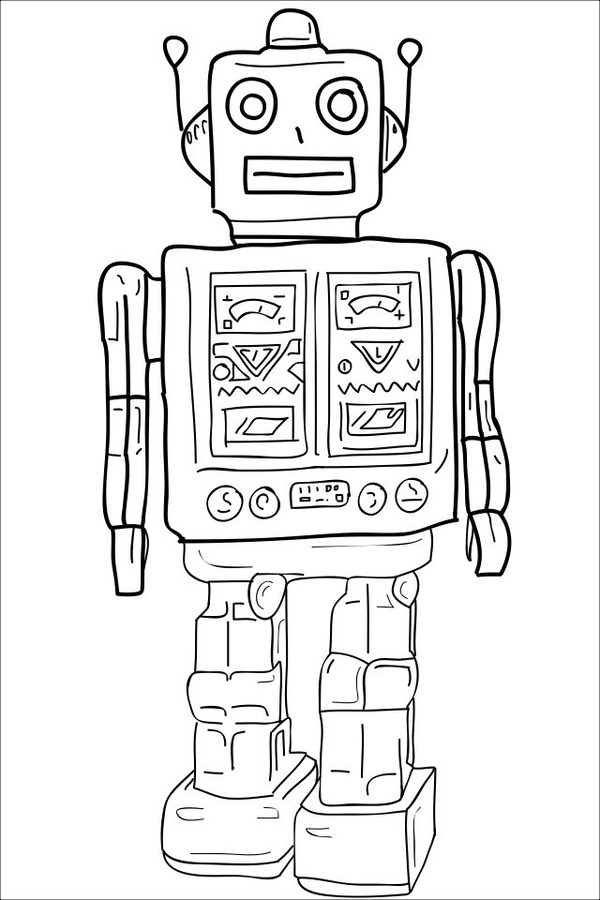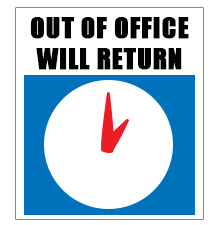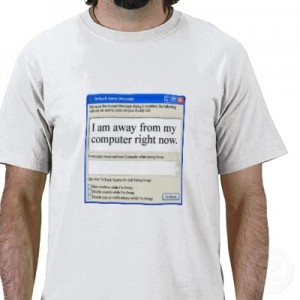Weekend Update: Soccer and Robots
I spent the weekend on two things, (really three if you add in making some BBQ) - watching way too much soccer (it is awesome to have the EPL back and to watch my Liverpool Reds open with a win) and reading about robots and automation.
I want to call out two longish pieces on automation and its potential impact on work, workplaces, and society that are definitely worth your time to check out. The first, and useful to set some historical context, is an essay from Daniel Askt titled, 'What Can We Learn From Past Anxiety Over Automation?', a really interesting look at what many leading scientists, economists, and other wonky types were thinking and predicting about the 'threat' of automation in the middle part of the 20th century.
It turns out that in the 50s and 60s the worries over the increasing pace of technological advancements and the potential disruptions to many forms of work and workers sound much like those same concerns about modern innovations and increased automation. Check out this passage from the piece, and ask if this exact same argument made in 1966 could be reasonably accurate today:
In 1966, the Commission on Technology, Automation, and Economic Progress issued a sensible report rejecting the argument that technology was to blame for a great deal of unemployment, although, with the wisdom of Leopold Bloom, it recognized technological change as “a major factor in the displacement and temporary unemployment of particular workers.”
And who were those workers? The answer will be all too familiar: “Unemployment has been concentrated among those with little education or skill, while employment has been rising most rapidly in those occupations generally considered to be the most skilled and to require the most education. This conjunction raises the question whether technological progress may induce a demand for very skilled and highly educated people in numbers our society cannot yet provide, while at the same time leaving stranded many of the unskilled and poorly educated with no future opportunities for employment.”
It all sounds pretty familiar, right? Technological advances tend to reduce the demand for unskilled or relatively lower-skilled forms of labor, as better, faster, cheaper forms of capital are introduced as replacements for human labor. The macro-education system is called upon to adapt and adjust, as the aggregate skills of the workforce need to shift towards those higher order and more technical skills that employers are demanding.
Fast forward from the 1960s to the present day where the disruptive nature of technological progress on the workforce remains a subject of intense debate, interest, and importance. And that leads me to the second longer form piece I'd like to highlight which comes from the Pew Research Internet Project and is titled AI, Robotics, and the Future of Jobs.
Pew conducted a survey and produced a detailed report that covers numerous experts’ views about advances in artificial intelligence (AI) and robotics, and their impact on jobs and employment. And interestingly enough, these experts were split almost down the middle on whether or not the inevitable continued advances in AI and robotics would displace 'significant' numbers of both lower skilled as well as higher skilled, or 'white collar' workers. Here is an excerpt from the Pew report:
Half of these experts (48%) envision a future in which robots and digital agents have displaced significant numbers of both blue- and white-collar workers—with many expressing concern that this will lead to vast increases in income inequality, masses of people who are effectively unemployable, and breakdowns in the social order.
The other half of the experts who responded to this survey (52%) expect that technology will not displace more jobs than it creates by 2025. To be sure, this group anticipates that many jobs currently performed by humans will be substantially taken over by robots or digital agents by 2025. But they have faith that human ingenuity will create new jobs, industries, and ways to make a living, just as it has been doing since the dawn of the Industrial Revolution.
Similarly to the divided opinions of 'experts' in the 50s and 60s, there is simply not a consensus leading technology thinkers today about the ultimate effects of technological progress on work and the workplace - at least in an overall, society-wide sense.
There is however, general agreement, (and there was back in the day as well), of the micro or individual likely impacts of increased automation, AI, and robotics on workers. Perhaps these comments from Robert Cannon in the Pew report sum up these predictions the best:
Non-skilled jobs lacking in ‘human contribution’ will be replaced by automation when the economics are favorable. At the hardware store, the guy who used to cut keys has been replaced by a robot. In the law office, the clerks who used to prepare discovery have been replaced by software. IBM Watson is replacing researchers by reading every report ever written anywhere. This begs the question: What can the human contribute? The short answer is that if the job is one where that question cannot be answered positively, that job is not likely to exist.”
So again, the way we describe the types of effects and the nature of the impact of technological change on work and workers hasn't really changed all the much in the last 50 or 60 years. Machines disrupt work, particularly work that is process-defined, repetitive, and where words like initiative and creativity are missing.
But was has changed, and some modern commentators argue that the pace of this change is accelerating, is that the definition of jobs that are process-defined, repetitive, and non-creative is getting closer and closer to home for many folks that have always considered themselves 'knowledge workers' or 'professionals.'
In the 50s and 60s, automation (mostly) threatened manual laborers and lower skilled manufacturing workers. The advances in technology hadn't yet infiltrated the professional offices of that time. Watch a few episodes of the TV series Mad Men and you will see lots of office workers typing up notes, filing things, preparing correspondence for other people, and more of less passing around papers. Today's offices? Well not so much.
The difference today, and to some the more profound worry, is best summarized in this observation from the piece from Akst:
Instead of automating repetitive tasks, technology today is climbing the cognitive ladder, using artificial intelligence and brute processing power to automate (however imperfectly) the functions of travel agents, secretaries, tax preparers, even teachers — while threatening the jobs of some lawyers, university professors, and other professionals who once thought their sheepskins were a bulwark against this sort of thing. Maybe this time, things really are different.
So while we have been as a society collectively worried (and changed) by advances in technology and in the automation of some kinds of work for at least 100 or maybe 150 years, we still struggle in predicting what these changes might mean.
It seems comforting to fall back on the 'Technology always changes work, but it always creates lots of new opportunities as well' argument and try to cling to the notion that after the turbulence of change, things will turn out all right in the end. After all, proponents of this line of thinking say, technology has displaced millions of farmers and factory workers in the past, and the overall economy did not implode.
In the past, the former agricultural workers were able to (largely) migrate to manufacturing jobs. When the manufacturing jobs began to get displaced, many of these workers ended up in service jobs, lower paid and less secure kinds of jobs. Now that automation is threatening these service jobs, (have you seen the burger-making robot?), where can these workers go? Especially when more and more of the 'white collar' jobs that might have been reasonable landing places, (clerks, claims processors, customer service agents), are themselves increasingly becoming the realm of technology, algorithms, and machines. Every displaced worker can't suddenly become a coder.
What if, indeed, this time things really are different?
I might hit some of the possibly answers to that question in a follow-up post later in the week if I can.
Have a great week everyone, and definitely read the two pieces that I linked to and cited in the post, I think you will find them both incredibly interesting.

 Steve
Steve




